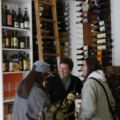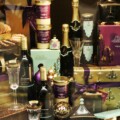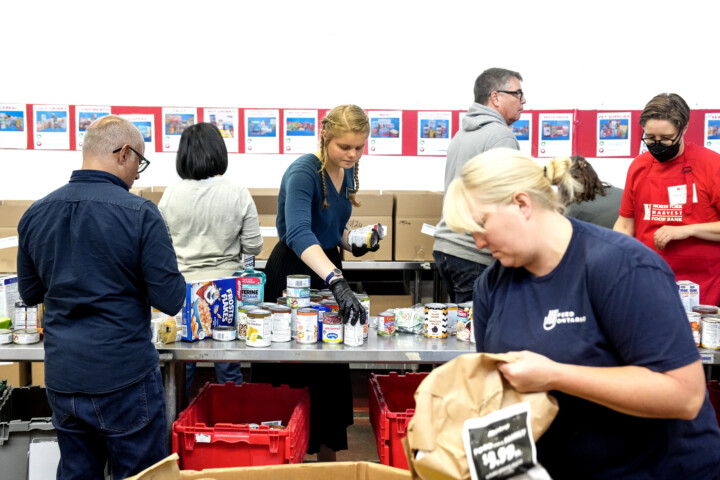Emily Oster is a professor of economics at Brown University and a best-selling author. Her website describes her work as focused on health economics and statistical methods. She investigates how and why people do or don’t make rational decisions about their health, and she is known for her commentary on public health matters.
The Atlantic recently published a piece by Oster with the headline, “Is a Glass of Wine Harmless? Wrong Question.” Oster’s piece looks at the arguments against drinking alcohol, which appear increasingly in lifestyle media, citing the 2018 study in The Lancet, Britain’s pre-imminent medical journal, which concluded no amount of alcohol is good for you, and this year’s recommendation from the Canadian Centre on Substance Use and Addiction that stated: “No amount of alcohol is safe and that consuming any more than two drinks a week is risky.”
Oster applies the razor of the statistician to the evidence, such as there is, for these claims. She does not dismiss them wholesale, but neither does she find them convincing. She writes, “it… seems extremely unlikely that moderate alcohol consumption is fully ‘bad’ for your health.”
The words moderate and fully do much of the work in the preceding quote, but the tone of the article suggests that having a few drinks is neither particularly good for you nor particularly bad for you. When other factors, like the general state of your health, are weighed in, prohibitionist or abstinence arguments based on medicine and physical health are likely, at best, overblown.
The argument Oster forms after her review of the evidence is that the decision to drink is better made by the amount of pleasure the drink provides. She writes:
If you do not enjoy, or actively dislike, alcohol, then the abstinence standard might be the right one for you. But many people do enjoy a drink from time to time: a beer with friends, a cold glass of rosé in the summer, a hot toddy in front of the fire, even just a glass of white wine while cooking at the end of a long day. If we accept that pleasure has value, and that the data are muddy, then the moderation standard makes more sense.
Edward Slingerland is a professor of philosophy and religious studies at the University of British Columbia. I think he would agree with Oster. In his 2021 book, Drunk: How We Sipped, Danced, and Stumbled Our Way to Civilization, he looks at the question of why people drink from another angle. He writes about our age-old relationship with alcohol:
Given the potentially enormous costs, and apparent lack of benefits, to impairing our cognitive control, why do humans still like to get intoxicated? Why is the labour intensive practice of converting wholesome grains and delicious fruit into bitter, low-dose neurotoxins… so ubiquitous across cultures and geographic regions?
One of the reasons Slingerland posits for our boozy ways is conviviality. Slingerland points out that it’s not just fun to have a glass of wine with our friends, it’s a particular kind of bonding. When we agree to have a low-dose neurotoxin together, we’re letting our guard down and sharing an intimacy of vulnerability.
Of course, there are many ways to find pleasure and intimacy without alcohol and the impairment of the prefrontal cortex. But it’s nice to know we’re neither in grave danger, nor completely mad for enjoying a glass of wine at the end of the day, or with a meal, or whenever.
I was thinking of Oster’s article and Slingerland’s book this week when an old friend, who lives in the States, was in town and came over for dinner. He showed up with a fancy bottle of Burgundy, and he apologized that he didn’t buy a bottle of Canadian wine since he didn’t know much about it.
In fact, I replied, he sort of did. The 2020 Marchand-Tawse Nuits-Saint-Georges he’d brought is the product of the partnership of ex-pat Quebecois winemaker Pascal Marchand and Ontario financier turned vigneron Moray Tawse. Though young, it drank beautifully after an hour of air, with complex blackberry notes.
The effect of very fine wines is often counterintuitive. They slow down the pace of drinking because every nuance and note wants to be processed and savoured, from the attack to the long finish. The effect of slowing things down extended the pleasure of the company in a kind of virtuous cycle.
Oster uses the example of a cold glass of rosé in the summer when she enumerates the way that people might enjoy a drink. I hope all wines are built for pleasure, but rosé is certainly built for fun. There are some rosé that are more serious, or gastronomic, than others, but, generally, most rosé is meant to be uncomplicated and slaking.

Another source of vinous pleasure I have been enjoying this summer is white wines made from the indigenous grapes of the South of France, which tend to add a bit of weight on the palate. Like the Southern French, the South Africans know a thing or two about making wines for hot weather, and the 2022 Essay White, a blend of Chenin Blanc, Roussanne, and Viognier, is in heavy rotation currently in my fridge.
Grapefruit citrus from the Chenin, honeysuckle from the Roussane, and white flower aromatics from the Viognier combine to make a pleasurable glass. The Essay White is new to Canada, and so far only in Ontario. The first bottle I tasted was sent to me as a sample without any market information. I was very pleasantly surprised to learn that it is priced well under $20.
Essay is a project of the MAN Family group of South African wines. MAN Family was established by a group of high-end producers to make affordable everyday wines at the standard of quality of their luxury brands. What greater pleasure than enjoying a wine for a great price?
Recommended for You

In defence of wealth and money this Lunar New Year

Wine is but a dream

From Spain to Chile and beyond—what wines to watch for in 2026

Is there any holiday cheer in the wine world?




